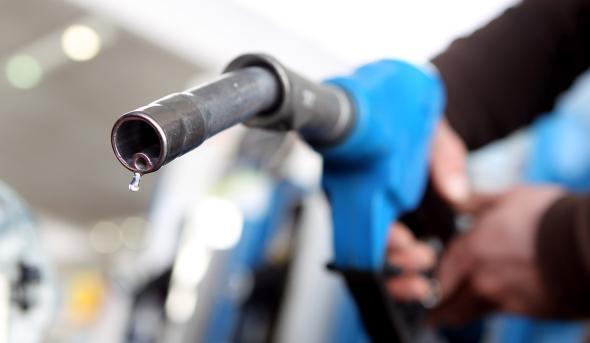Heading into tonight’s State of the Union, we already know the broad-brush strokes of what President Obama will tout in terms of policy proposals. My colleague Jordan Weismann, looking at reports of Obama’s plan to push paid sick leave and higher taxes on the wealthy, has aptly dubbed the president’s SOTU agenda “dollar-store progressivism.” We also have a pretty good idea what he won’t be proposing: raising the federal gas tax to address the nation’s perpetual transportation funding crisis.
That’s too bad. As I explained last year, there’s little argument among policy experts that those who drive on U.S. roads should pay more to prevent them from falling further into a state of disrepair—and study after study has suggested that raising fuel taxes is the easiest way to do that in the immediate future. It’s a common-sense solution that isn’t reserved for policy wonks either: The U.S. Chamber of Commerce and other business-friendly groups tout the economic potential of a gas tax hike; climate hawks and their allies, meanwhile, see it as a way to curb greenhouse gas emissions from the transportation sector.
There has always been a strong policy case for a gas tax hike. With gas currently so cheap, there’s now finally a strong political case to go with it. As I’m writing this post, a gallon of unleaded costs an average of $2.05, down a whopping $1.23 from a year ago. More than half of the nation’s gas stations are charging less than $2 per gallon, according to AAA. If Washington isn’t brave enough to tell voters that they need to pay more at the pump at a time when they’re paying so little, there is no reason to suspect the president or Congress will find the courage once gas prices begin to rise, as they inevitably will. (A gas tax hike also wouldn’t necessarily contradict the president’s larger middle-class SOTU message—gas tax proposals often come with corresponding rebates for low- and middle-income households.)
What also makes tonight’s SOTU such a missed opportunity to push the gas tax into the national conversation is that it seems to finally—and somewhat surprisingly—be gaining momentum in Congress. “It’s a small price to pay for the best highway system in the world,” Republican Orrin Hatch, the new Senate Finance chairman, said last week. Dick Durban, the No. 2 Democrat in the Senate, went one better, saying: “I think now is the time to do it.” That’s not the type of rhetoric we’ve heard from congressional leaders on either side of the aisle in recent years.
This is a message Americans need to hear. Because the Highway Trust Fund, which provides the bulk of federal funding for the nation’s highways and public transportation, relies on fuel tax revenues, it has faced one looming shortfall after another during the past half-decade. When you adjust for inflation, Americans are currently paying 40 percent less in taxes per gallon of gas—and that’s before you factor in the reality that Americans are buying fewer gallons as they drive more fuel-efficient cars fewer miles. As things stand, the trust fund is expected to face an $18 billion shortfall every year for at least the next decade, according to the Congressional Budget Office.
Congress has had to transfer more than $50 billion in taxpayer money to the Highway Trust Fund over the past six years just to keep it solvent. Yet instead of making a forceful case for increasing the gas tax, Washington continues to rely on short-term accounting tricks and last-second transfers to keep the fund afloat for a few more months, after which they have to do it all over again. Obama’s latest fix, for example, relies on an injection of cash from a temporary tax increase on companies’ overseas earnings, making it the latest in a string of proposals to address the short-term cash crunch while ignoring the long-term crisis.
Perhaps sensing a willingness to consider the issue from the other side of the aisle, the Obama administration, whose opposition has always appeared more about politics than policy, has softened its tone lately. “We don’t believe the best way to fund modernizing our infrastructure is to raise the gas tax,” White House press secretary Josh Earnest told reporters this month. “But some people do, and we’re willing to consider those proposals.” That’s far from an endorsement, but it’s even further from the near-comical lengths the White House has taken to distance itself from talk of a gas tax hike in the past.
A gas-tax-free SOTU won’t halt the nascent and long-overdue momentum behind a gas tax increase, but it won’t do it any favors either. Eventually high gas prices are going to return and, once they do, so will Washington’s unwillingness to even consider doing what they’ve long known they need to do.
